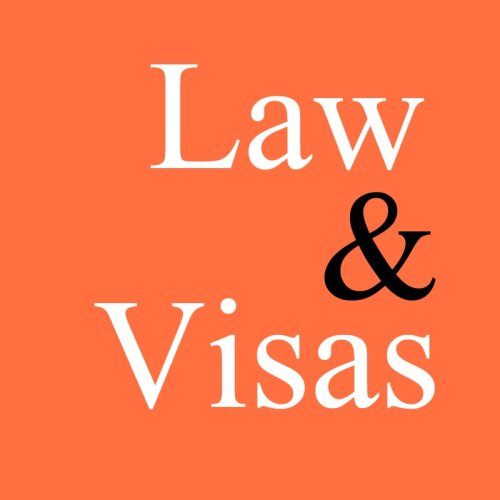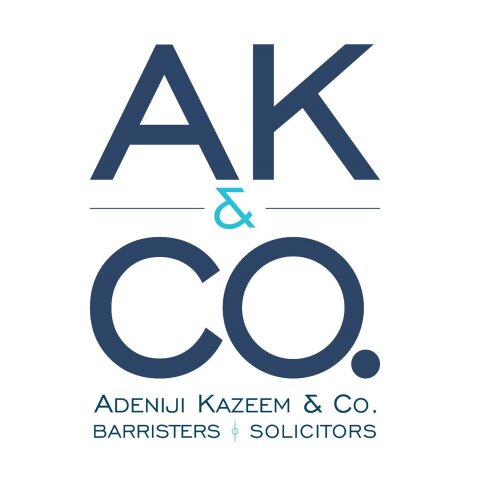About Citizenship Law in Lagos, Nigeria
Citizenship in Lagos, Nigeria, as with the rest of the country, is governed by the Nigerian Constitution and the Nigerian Immigration Act. Citizenship can generally be acquired through birth, descent, registration, and naturalization. Lagos, as a major metropolis, has a diverse population, making the issue of citizenship particularly pertinent to many of its residents and newcomers. The city, being a melting pot, often faces unique challenges associated with citizenship, largely related to its economic opportunities and cultural diversity.
Why You May Need a Lawyer
Seeking legal assistance in matters of citizenship is crucial for several reasons. These include complexities in documentation, the need to understand eligibility criteria for citizenship, or resolving disputes over citizenship status. A lawyer can assist you in applying for citizenship, providing guidance on meeting the naturalization requirements, or helping with any appeal processes. They can also be vital in conducting the due diligence required for dual citizenship applications or in challenging deportation orders.
Local Laws Overview
In Lagos, as part of Nigeria, the key laws regarding citizenship are enshrined in the 1999 Constitution of the Federal Republic of Nigeria and the Immigration Act. Key points include:
- Citizenship by Birth: Individuals born in Nigeria to Nigerian parents or grandparents are generally considered Nigerian citizens.
- Citizenship by Descent: Nigerian citizenship can also be acquired by individuals born outside Nigeria if they have at least one Nigerian parent.
- Citizenship by Registration: Available for married foreign women, descendants of Nigerian grandparents, and minors.
- Citizenship by Naturalization: Available to foreigners who have lived in Nigeria for a specified period and meet other criteria.
Lagos residents must comply with these national legal frameworks, and local legal counsel is recommended to navigate specific challenges.
Frequently Asked Questions
What are the eligibility requirements for Nigerian citizenship by naturalization?
You must have resided in Nigeria for at least 15 years, be of good character, have clear intentions to reside in Nigeria, and demonstrate contributions to the country's cultural, economic, or social life.
Can a child born to one Nigerian parent abroad claim Nigerian citizenship?
Yes, as per the Constitution, children born abroad to at least one Nigerian parent are eligible for Nigerian citizenship by descent.
Are dual citizenship arrangements permitted in Nigeria?
Yes, dual citizenship is permitted for Nigerian citizens by birth, but those who acquire citizenship of another country by naturalization or registration may need to meet additional requirements.
How do I apply for registration as a Nigerian citizen?
You must submit an application to the Nigerian Immigration Service, along with necessary documents proving your eligibility through your Nigerian ancestry or marriage to a Nigerian citizen.
Can citizenship be revoked in Nigeria?
Yes, citizenship by naturalization or registration can be revoked if it is found to be obtained by fraud, if the individual demonstrates disloyalty to Nigeria, or for other serious offenses.
What documents are required for citizenship application processes?
Common documents include birth certificates, proof of residence, affidavits of support, marriage certificates (where applicable), and any prior citizenship or immigrant documentation.
Is legal representation necessary for citizenship applications?
While not mandatory, legal representation can be highly beneficial to navigate complex legal procedures and ensure all documentation and requirements are accurately met.
What steps should I take if my citizenship application is denied?
If your application is denied, it's advised to consult with a legal expert in citizenship law to understand the reasons for the denial and explore options for appeal or reapplication.
Can I acquire Nigerian citizenship if I am married to a Nigerian citizen?
Yes, foreign women married to Nigerian men can apply for Nigerian citizenship by registration. The process for men married to Nigerian women differs and may require additional legal consultation.
How can I verify my citizenship status?
You can verify your citizenship status through the Nigerian Immigration Service or consult with a legal professional for accurate legal confirmation.
Additional Resources
If you need more information on citizenship, the following resources can be highly beneficial:
- Nigerian Immigration Service: Provides a host of resources and guidelines on citizenship applications.
- Federal Ministry of Interior: Offers information on Nigerian citizenship laws and processes.
- Legal Aid Council of Nigeria: Offers assistance and advice, including on citizenship-related legal matters.
- Citizen Rights Information Center: Provides information and awareness on citizen rights and legal resources.
Next Steps
If you believe you require legal assistance regarding citizenship issues, your first step should be to consult with a lawyer who specializes in immigration or citizenship law. Prepare by gathering all relevant documents and questions you may have regarding your case. Contact local law firms or use the Legal Aid Council of Nigeria to find qualified assistance. Act promptly, as legal matters related to citizenship can be time-sensitive and may require immediate attention.
Lawzana helps you find the best lawyers and law firms in Lagos through a curated and pre-screened list of qualified legal professionals. Our platform offers rankings and detailed profiles of attorneys and law firms, allowing you to compare based on practice areas, including Citizenship, experience, and client feedback.
Each profile includes a description of the firm's areas of practice, client reviews, team members and partners, year of establishment, spoken languages, office locations, contact information, social media presence, and any published articles or resources. Most firms on our platform speak English and are experienced in both local and international legal matters.
Get a quote from top-rated law firms in Lagos, Nigeria — quickly, securely, and without unnecessary hassle.
Disclaimer:
The information provided on this page is for general informational purposes only and does not constitute legal advice. While we strive to ensure the accuracy and relevance of the content, legal information may change over time, and interpretations of the law can vary. You should always consult with a qualified legal professional for advice specific to your situation.
We disclaim all liability for actions taken or not taken based on the content of this page. If you believe any information is incorrect or outdated, please contact us, and we will review and update it where appropriate.

















